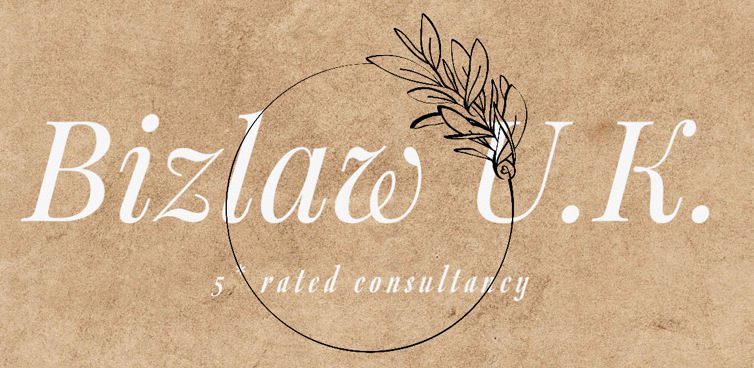|
Getting your Trinity Audio player ready...
|
Financing the purchase of a small business

You are looking to finance the purchase of a small business. What do you do? Where do you start? One of the initial steps in an acquisition is financing. There are several considerations to make when looking to finance a new business. Let us look at the most common ways to finance the purchase of a small business:
1. Your Own Fund
- The simplest way to finance a business acquisition is to use your funds. These funds include your savings, retirement accounts, and home equity. Although you will need to use some of your funds for the purchase, it is uncommon for someone to acquire a business by using only their funds for the purchase. Otherwise, few people would be able to acquire larger businesses. Instead, most buyers use their funds in combination with seller financing and/or a business loans. This leverage allows them to purchase larger companies.
2. Seller Financing
- Another common way to finance an acquisition is to ask the seller to provide financing. The seller offers an amortized loan in this case. You pay the loan back, usually from the proceeds of the business. Business buyers like seller financing because it is easier to get than conventional financing, it is more flexible, it gives the seller a vested interest in disclosing accurate performance information, and it can be cheaper. Also, expect that seller financing will be provided only after the seller has done their due diligence on you. Therefore, the seller will want to see your credit, assets, experience, and business plan. Seller loans are more flexible in that they can give you a loan over a few years and you have got more flexibility as to how much of the selling price it covers. The use of them can help tie payments to the performance of an organization.
Given the inherent complexity of business purchases, we have specialist advisers who can help you navigate this process. For expert funding advice and connections, contact help@bizlawuk.co.uk or WhatsApp us on 07583452230 and we can connect you to the right business law professional. Visit https://www.bizlawuk.co.uk to find out more about how we can help you with our other business services, check our 5-star testimonials and watch our Youtube channel or listen to our podcasts. If you find this information useful, please follow our social media platforms, like, and share.
3. Bank Loans
- Securing financing through large bank institutions can be difficult for anybody looking to purchase a business. Banks tend to look mre favorably upon the purchase of an existing business with a proven track record. Thus, to get a loan, you must have substantial assets, good personal credit, and a solid track record in the industry. The banks would more than likely have to refer the unsuccessful applicant to other providers such as peer-to-peer lending services. There are two types of bank loans – Secured loans and unsecured loans.
- Secured Loans- The secured loan is one where you borrow money to buy some asset that you own. The name secured refers to the fact that a lender will require something as security in case you cannot pay the loan back. The name secured refers to the fact that a lender will require something as security in case you cannot pay the loan back. This will usually be your home. Secured loans are less risky for lenders, which is why they are normally cheaper than unsecured loans. But they are much riskier as a borrower because the lender can repossess your home if you do not keep up repayments. There are several names for secured loans, including:
- Home equity or homeowner loans.
- Second mortgages or second charge mortgages
- First charge mortgages (if there is no existing mortgage)
- Debt consolidation loans (although not all of these loans are secured).
- Unsecured Loans- An unsecured loan is more straightforward. . If you do not make the payments, you might incur additional charges. The term and amount to repay on an unsecured loan will vary but if you have a bad credit rating, it will be a more difficult option to explore because of that risk to the lender.
- Secured Loans- The secured loan is one where you borrow money to buy some asset that you own. The name secured refers to the fact that a lender will require something as security in case you cannot pay the loan back. The name secured refers to the fact that a lender will require something as security in case you cannot pay the loan back. This will usually be your home. Secured loans are less risky for lenders, which is why they are normally cheaper than unsecured loans. But they are much riskier as a borrower because the lender can repossess your home if you do not keep up repayments. There are several names for secured loans, including:
4. Asset-based lending
- Asset-based lending (ABL) is a way for established businesses to finance rapid growth or big contracts, using assets such as invoices, inventory, equipment, machinery, or commercial property as security for a business loan. This is much like a secured loan. Asset lending is when money is borrowed to purchase essential assets for a business, such as a piece of office equipment, vehicles, or even property. If the loan is not repaid then the lender has the right to seize the assets. This means it differs from a traditional bank loan and offers an alternative way to access vital assets your business needs
5. Peer-to-peer finance and crowdfunding
- Peer-to-peer (P2P) financing and crowdfunding share one common principle: raising finance online from several people, or investors, who pool together. P2P business lending is a fast and accessible way of getting a cash injection into your business.
- The essential difference between P2P lending and crowdfunding is that you do not give away any equity, but rather pay interest on the money you borrow, much like you would with a bank loan. In the world of peer-to-peer lending, it is often thought that firms that can make monthly payments are the greatest candidates for this sort of loan.
- Whether you need a loan to buy a piece of equipment, purchase a property, buy stock, or general working capital, P2P lending for businesses offers the most accessible and flexible way of finance for established businesses. Whereas crowdfunding is a method of raising finance that is typically suited to start-ups or early-stage businesses, as you are not required to make regular repayments like you would with a bank loan. Instead, you can give away equity in your business or donate the final product.
- The majority of crowdfunding platforms in the UK involve selling ownership in your business, known as equity-based crowdfunding. Some global crowdfunding websites operate a rewards-based scheme, where in exchange for a contribution, you give your investors the finished product you are making.
6. Leveraged Buyout
- This alternative is one that few small business owners consider. If the business has assets that can be leveraged, it may be acquired via an LBO structure regardless of size. These assets usually include real estate, inventory, machinery, and equipment. A loan against assets may also be combined with other types of financing.
- The principle behind an LBO is that the owner uses little of his or her own money for the purchase. Instead, they leverage the assets of the business and use external financing to purchase the company
7. Assumption of Debt
- Most business ‘asset-purchase acquisitions involve the transfer of some assets and liabilities. This point is important because part of your payment to the seller may be the assumption of existing business debt. Debt assumption can be a complex process, as you often have to get the consent of the debtors. Debt assumption can be a complicated process that requires the original lender’s consent. Furthermore, the lender may need to re-underwrite it.
Given the inherent complexity of business purchases, we have specialist advisers who can help you navigate this process. For expert funding advice and connections, contact help@bizlawuk.co.uk or WhatsApp us on 07583452230 and we can connect you to the right business law professional. Visit https://www.bizlawuk.co.uk to find out more about how we can help you with our other business services, check our 5-star testimonials and watch our Youtube channel or listen to our podcasts. If you find this information useful, please follow our social media platforms, like, and share.
